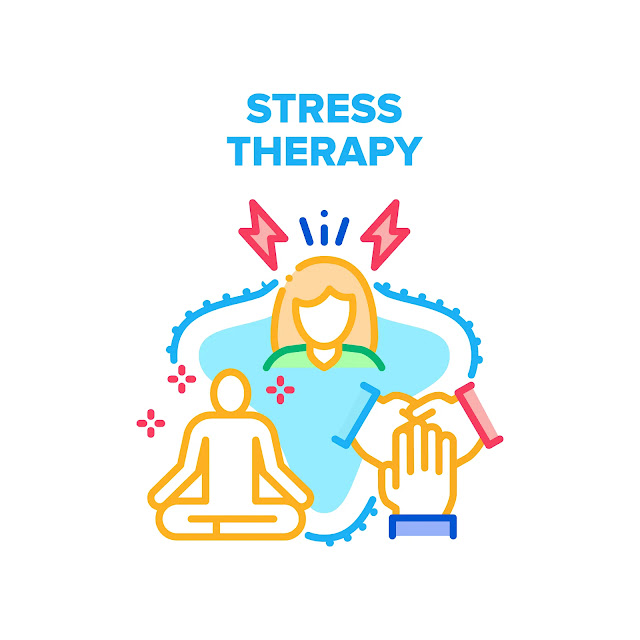When it comes to overall health and wellbeing, mental wellness is just as important as physical health. Emotional health, or mental wellbeing, refers to our ability to manage our emotions, cope with stress, and maintain positive relationships with others. In this article, we'll explore the importance of emotional health and how a health and wellness center can help you prioritize your mental wellness.
The Link Between Emotional Health and Overall Health and Wellbeing
Emotional health is a critical component of overall health and wellbeing. Poor emotional health can lead to a range of physical and mental health problems, including anxiety, depression, and chronic stress. On the other hand, prioritizing emotional health can lead to improved overall health outcomes, including better physical health, improved cognitive function, and a greater sense of happiness and wellbeing.
How a Health and Wellness Center Can Help Promote Emotional Wellness
A health and wellness center is a great resource for promoting emotional wellness. These centers offer a variety of services and programs designed to support mental wellbeing, including:
Counseling and therapy: Many health and wellness centers offer counseling and therapy services, which can help individuals manage stress, cope with emotional challenges, and address mental health conditions.
Mindfulness and meditation: Mindfulness and meditation practices can help individuals manage stress, reduce anxiety, and improve overall emotional health.
Nutrition and exercise programs: A healthy diet and regular exercise can have a positive impact on both physical and emotional health.
Stress management programs: Stress management programs can help individuals learn strategies for managing stress and promoting emotional wellbeing.
Social support programs: Social support programs, such as support groups and community events, can help individuals build connections with others and promote emotional wellbeing.
The Benefits of Prioritizing Emotional Wellness
Prioritizing emotional wellness can have a range of benefits for overall health and wellbeing. Some of the benefits of prioritizing emotional wellness include:
Improved mental health: Prioritizing emotional wellness can help to reduce symptoms of anxiety and depression and improve overall mental health.
Better physical health: Prioritizing emotional wellness can lead to better physical health outcomes, including improved immune function and reduced risk of chronic disease.
Increased happiness and life satisfaction: Prioritizing emotional wellness can lead to a greater sense of happiness and life satisfaction.
Improved relationships: Prioritizing emotional wellness can help individuals build stronger and more positive relationships with others.
Emotional health is a critical component of overall health and wellbeing. Prioritizing emotional wellness through a health and wellness center can have a range of benefits for both physical and mental health. By investing in emotional wellness, individuals can improve their overall quality of life and build a solid foundation for long-term health and wellbeing.
What are some other ways to prioritize emotional wellness?
There are many ways to prioritize emotional wellness beyond seeking support from a health and wellness center. Here are some additional strategies that can help promote emotional wellness:
Practice self-care: Self-care activities, such as taking a relaxing bath, reading a book, or spending time in nature, can help to reduce stress and promote emotional wellness.
Get enough sleep: Getting enough restful sleep is essential for emotional wellness. Aim for seven to eight hours of sleep each night, and establish a relaxing bedtime routine to help you wind down before sleep.
Connect with others: Social connections are important for emotional wellness. Make time for activities with friends and family, and consider joining a support group or community organization.
Learn stress management techniques: Stress management techniques, such as deep breathing or progressive muscle relaxation, can help to reduce stress and promote emotional wellness.
Engage in physical activity: Regular physical activity, such as walking or yoga, can help to reduce stress and improve overall emotional health.
Practice mindfulness: Mindfulness practices, such as meditation or yoga, can help to reduce stress and improve overall emotional health.
Seek support when needed: If you're struggling with emotional challenges, don't hesitate to seek support from a mental health professional or other trusted resource.
There are many ways to prioritize emotional wellness beyond seeking support from a health and wellness center. By engaging in self-care activities, getting enough sleep, connecting with others, learning stress management techniques, engaging in physical activity, practicing mindfulness, and seeking support when needed, individuals can promote emotional wellness and improve their overall quality of life.
What are some effective stress management techniques?
Stress is an inevitable part of life, and learning how to manage it effectively is crucial for our overall wellbeing. Here are some effective stress management techniques that can help you cope with stress and improve your mental and physical health:
Exercise: Regular physical activity is one of the best ways to manage stress. Exercise releases endorphins, which are natural mood-boosters, and helps to relieve tension and anxiety.
Mindfulness meditation: Mindfulness meditation involves focusing your attention on the present moment and accepting your thoughts and feelings without judgment. This practice can help to reduce stress, anxiety, and depression.
Deep breathing: Deep breathing exercises can help to reduce stress and calm the mind. Try taking slow, deep breaths in through your nose and out through your mouth, focusing on your breath as you do so.
Progressive muscle relaxation: This technique involves tensing and relaxing different muscle groups in your body, one at a time. It can help to release tension and promote relaxation.
Get enough sleep: Getting enough restful sleep is essential for managing stress. Aim for seven to eight hours of sleep each night, and establish a relaxing bedtime routine to help you wind down before sleep.
Connect with others: Social support is important for managing stress. Reach out to friends or family members when you're feeling stressed, or consider joining a support group.
Time management: Poor time management can lead to stress, so it's important to prioritize your tasks and activities and create a schedule that works for you.
Practice self-care: Taking care of yourself is essential for managing stress. Make time for activities that you enjoy, such as reading, listening to music, or taking a relaxing bath.
In conclusion, there are many effective stress management techniques that can help you cope with stress and improve your overall wellbeing. Experiment with different techniques to find what works best for you, and make stress management a regular part of your self-care routine.








0 Comments